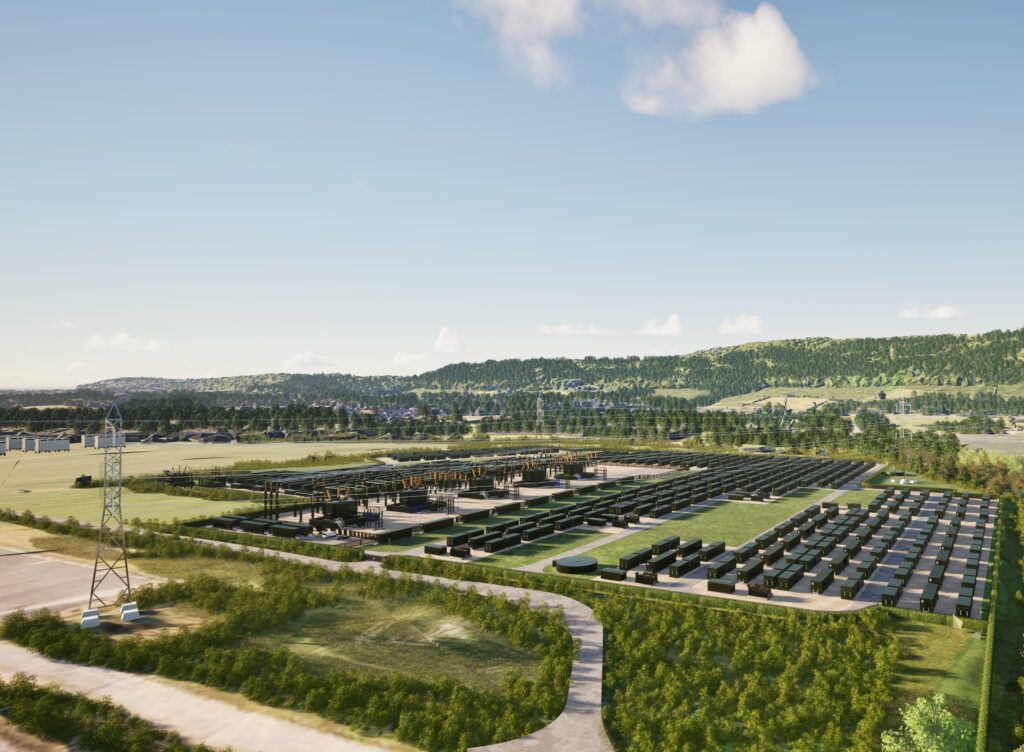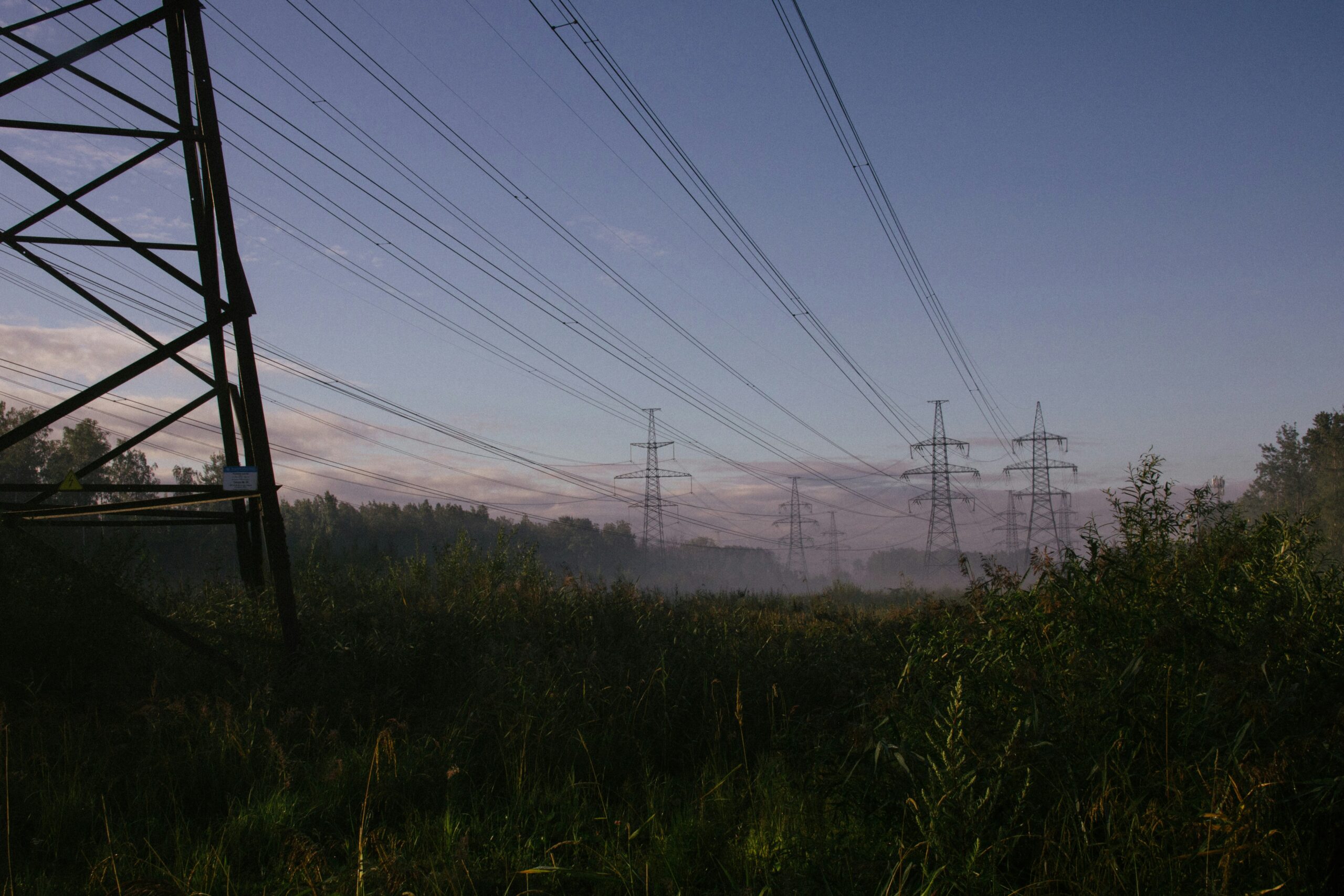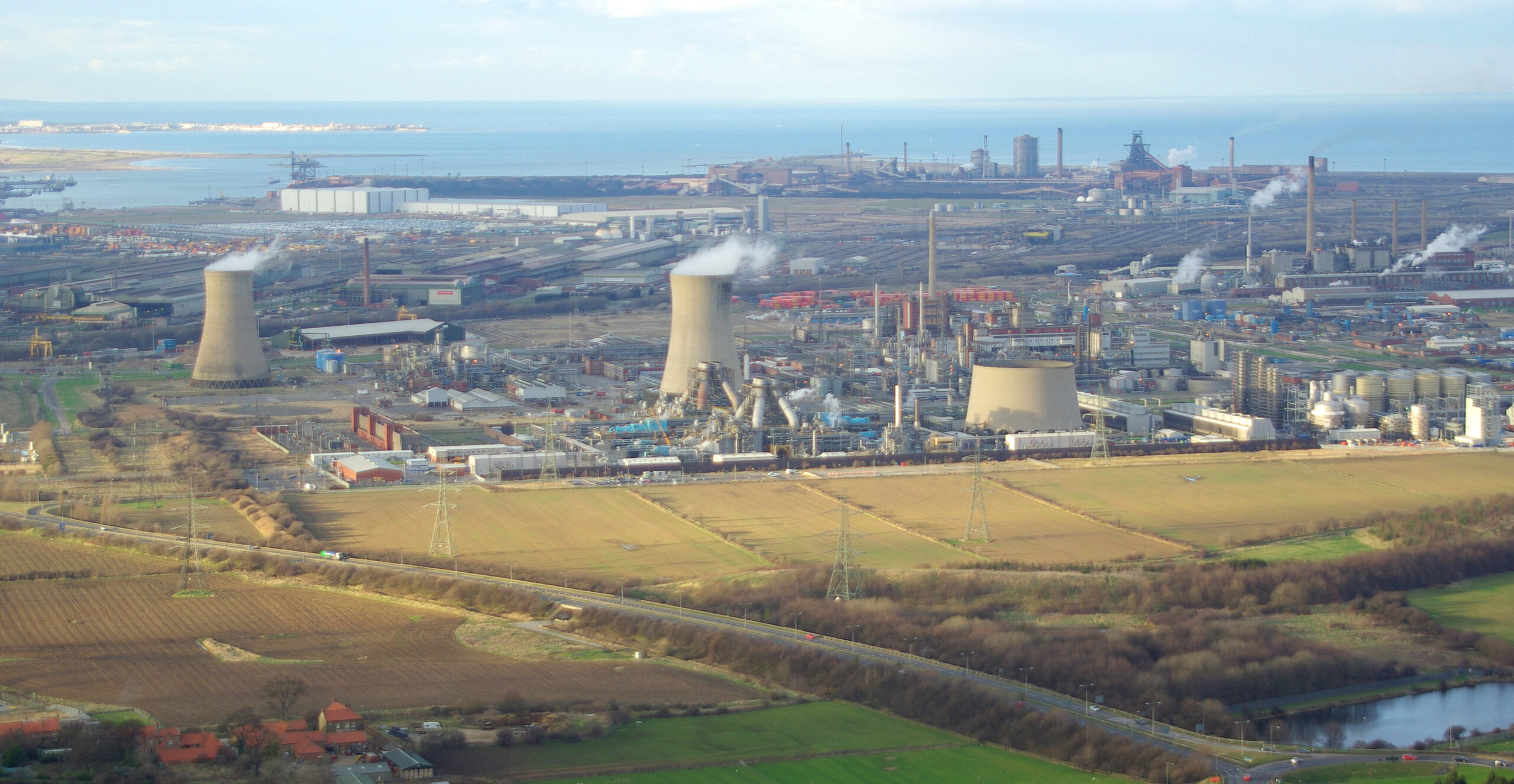
overview
About Teesside Gigapark
Teesside Gigapark will use a battery energy storage system (BESS) to store electricity at times of lower demand so it is available when it is most needed, enabling more renewable electricity projects to connect to the grid.
The proposed site, which forms part of the wider development of Wilton International, is located on 32 acres of land. The site falls entirely within the administrative boundaries of Redcar and Cleveland Borough Council.
The layout of the site will include a connection into the existing electricity network that will allow the site to balance supply and demand on the National Grid Transmission Network and will be operational for up to 50 years.

Site selection
We believe that Wilton International is an excellent location for a BESS because:

August 2025
Land agreement secured
We have secured an agreement with Sembcorp Utilities (UK) Limited, a wholly-owned subsidiary of Sembcorp Energy UK, for a 32-acre site at Wilton International in Redcar to deliver Teesside Gigapark, a 1GW / 4GWh lithium-ion Battery Energy Storage System (BESS).

Q1 2026
NESO to issue grid connection dates and point of connection as part of Gate 2 Connection Reforms
FIND OUT MORE
Document library
You can find out more by reading the documents we have published as part of our public consultation:
FAQs
NatPower UK is committed to supporting communities in becoming the most sustainable in the UK through their Community Energy Transition Foundation, which invests in the areas where they operate. They aim to make a positive impact by funding local sustainability projects, supporting job creation, and providing environmental enhancements and recreational opportunities. They encourage community input to identify needs and potential initiatives.
The site covers a total of 32 acres.
The Gigapark will have a storage capacity of 1GW.
The project is proposed by NatPower UK, a renewable energy developer with over 25 years of experience and 30GW of assets developed across 20 countries and six continents. NatPower UK aims to deliver more than 60GWh of energy storage across the country, targeting 20% of the UK’s energy storage requirement by 2040. They develop, build, and manage their projects, partnering with local communities to bring the benefits of clean energy transition to the areas they operate in.
Teesside Gigapark is a proposed battery energy storage system (BESS) designed to store electricity from the grid during periods of lower demand and release it back when needed most. This system aims to provide reliable, secure, and affordable electricity as the UK transitions away from coal and gas-based generation.
While the batteries themselves are silent, the associated heating, ventilation, and air conditioning systems generate some noise, typically around 65 decibels at a distance of 5 meters, comparable to a normal conversation. Given the site’s location in a busy industrial setting, these units will be situated a significant distance from the nearest homes, minimising any potential noise impact.
The site is situated within an industrial landscape at the heart of the Teesside Freeport, surrounded by various industries central to a low-carbon economy. NatPower UK is committed to sensitive and appropriate design to limit impacts on local communities. The site is selected to be a significant distance from residential areas, and assessments will be conducted to evaluate potential landscape impacts, informing mitigation measures as needed.
Although the site is currently greenfield, it is not used for agricultural purposes and the entire site is allocated for employment with the Redcar and Cleveland Local Plan, and is within the Wilton International estate, adjacent to significant energy and industrial based developments.
The risk of fire is extremely low due to the safe design of battery storage systems. NatPower UK collaborates with local Fire and Rescue Services, local authority environmental health teams, and other statutory bodies to ensure designs meet health and safety requirements. Comprehensive assessments are conducted to evaluate potential risks and impacts, with findings shared with the insurance industry to provide assurance that safety measures effectively minimise any risk to the local community. In the unlikely event of a fire, it would be contained within individual containers, preventing spread, with inbuilt monitoring and suppression mechanisms providing multiple layers of safety.
Yes, BESS utilises tried and tested technology commonly used in daily life, such as in mobile phones and electric vehicles. Safety measures are integrated into the battery design, including fire suppression systems with multiple layers of safety, which would only operate in the unlikely event of battery overheating. Batteries are housed in self-contained units to enhance safety.
The site has planning consent for the development of a Battery Energy Storage System. Environmental assessments and technical surveys are underway to refine proposals before undertake detailed design. Construction is planned to start in 2027, lasting about 18 months, with the intention of connecting to the National Grid by late 2028/ early 2029.
The construction phase is expected to last approximately 18 months and create around 300 local jobs. NatPower UK intends to procure suitably qualified local suppliers for the project and encourages interested parties to register their details with the team.
The Construction Management Plan will include mitigation measures, controls, and monitoring to reduce environmental effects during construction, including noise and vibration. Potential mitigation strategies may involve careful selection of plant and construction methods, use of site enclosures where practicable, locating noisy equipment away from sensitive areas, reducing noise and vibration at the source, and designing traffic routes to avoid residential areas where possible.
An abnormal load assessment will be prepared alongside a Construction Management Plan that will outline the approach to managing site traffic and consider potential cumulative effects of other local projects on the road network. While activity will vary during construction, approximately 2,000 HGV and light vehicle deliveries are expected over the two phases. Access to the site is proposed via Trunk Road, off the A1053 Greystones Road, entering Wilton International via the existing junction. During operation, the site will be managed remotely with minimal traffic, involving weekly site visits.
A Construction Management Plan will be developed, outlining measures to limit potential effects during construction. NatPower UK is keen to receive community input on measures to ensure minimal disruption. This plan will detail mitigation strategies, controls, and monitoring to reduce environmental effects such as dust, noise, and disturbance, including practices like wheel washing, street sweeping, and mist spraying. Temporary construction compounds will be established on-site before construction begins, housing staff offices, welfare facilities, material and machinery storage, security, and parking.
Teesside Gigapark will likely be built in two phases. Phase one is expected to start in 2027 and conclude around December 2028, lasting approximately 18 months. Phases two is anticipated to be delivered by 2032.
Email Address
teesside.bess@natpower.ukPostal Address
FAO Teesside
Level 8, Lily House, 13 Hanover Square, London, W1S 1HN, United Kingdom
Get in touch
"*" indicates required fields
